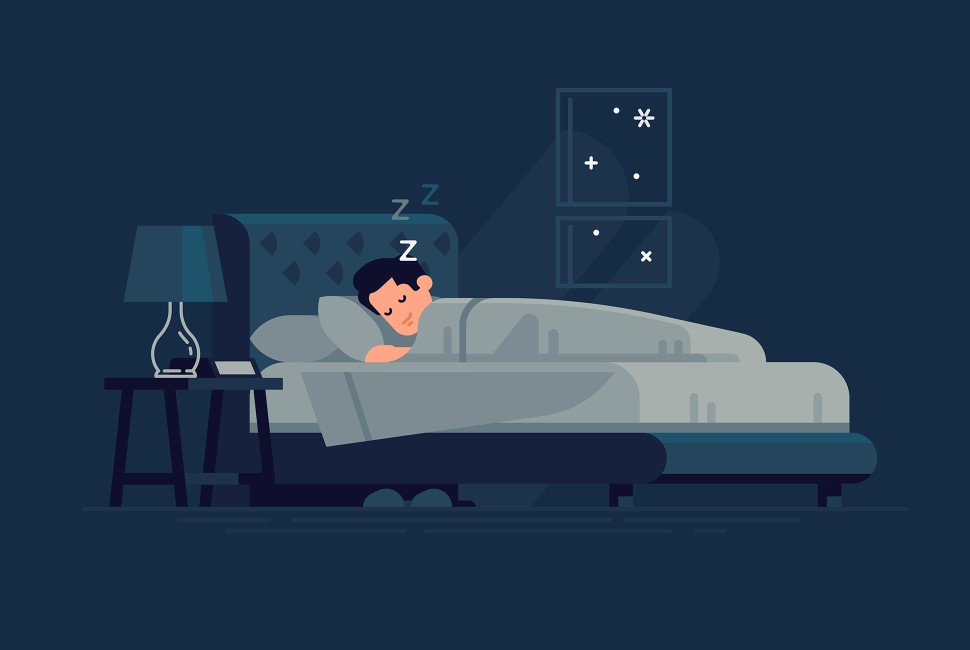In the quiet hours of the night, while the world sleeps, many individuals find themselves wide awake, battling against the relentless grasp of insomnia. Insomnia, characterized by difficulty falling asleep, staying asleep, or experiencing restorative sleep, affects millions worldwide. It's not merely a nuisance; it can significantly impact one's physical health, mental well-being, and overall quality of life. However, there are strategies to confront and overcome this nocturnal foe. Let's delve into some effective methods for dealing with insomnia.
Understanding Insomnia
Insomnia isn't a singular disorder; rather, it manifests in various forms and can stem from numerous factors. It may be transient, lasting for a few nights, or chronic, persisting for months or even years. Stress, anxiety, depression, irregular sleep schedules, poor sleep habits, caffeine or stimulant consumption, and medical conditions such as sleep apnea or restless legs syndrome can all contribute to insomnia.
Establishing a Sleep-Friendly Environment
Creating a conducive sleep environment is crucial for combating insomnia. Ensure your bedroom is dark, quiet, and comfortably cool. Invest in a supportive mattress and pillows. Limit exposure to screens before bedtime, as the blue light emitted by electronic devices can interfere with melatonin production, the hormone that regulates sleep-wake cycles.
Establish a Consistent Sleep Schedule
Consistency is key when it comes to sleep. Aim to go to bed and wake up at the same time every day, even on weekends. This helps regulate your body's internal clock, making it easier to fall asleep and wake up naturally. Avoid sleeping in or taking long naps during the day, as this can disrupt your sleep-wake cycle.
Practice Relaxation Techniques
Engage in relaxation techniques before bedtime to calm your mind and body. Deep breathing exercises, progressive muscle relaxation, meditation, or gentle yoga can help alleviate stress and promote relaxation. Create a pre-sleep ritual that signals to your body that it's time to unwind and prepare for sleep.
Limit Stimulants and Alcohol
Reduce or eliminate the consumption of stimulants like caffeine and nicotine, especially in the hours leading up to bedtime. These substances can interfere with your ability to fall asleep and stay asleep. While alcohol may initially make you feel drowsy, it can disrupt the quality of your sleep later in the night, leading to fragmented sleep patterns.
Develop Healthy Sleep Habits
Establishing healthy sleep habits, also known as sleep hygiene, is essential for managing insomnia. Avoid stimulating activities before bedtime, such as vigorous exercise or engaging in emotionally arousing conversations. Instead, opt for calming activities like reading a book or taking a warm bath. Additionally, limit your intake of food and liquids close to bedtime to prevent discomfort and nighttime awakenings.
Seek Professional Help
If your insomnia persists despite trying self-help strategies, don't hesitate to seek professional help. A healthcare provider can conduct a thorough evaluation to identify any underlying causes of your sleep difficulties and recommend appropriate treatment options. This may include cognitive-behavioural therapy for insomnia (CBT-I), medication, or addressing any underlying medical conditions contributing to your sleep disturbances.
Insomnia can feel like an insurmountable obstacle, but with the right approach, it can be conquered. By implementing these strategies and making sleep a priority, you can reclaim restful nights and wake up feeling refreshed and rejuvenated. Remember, overcoming insomnia is a journey, and finding what works best for you may require patience and persistence. So tonight, as you prepare to face the realm of sleep, arm yourself with these tools and embark on the path to peaceful slumber.




No comments:
Post a Comment